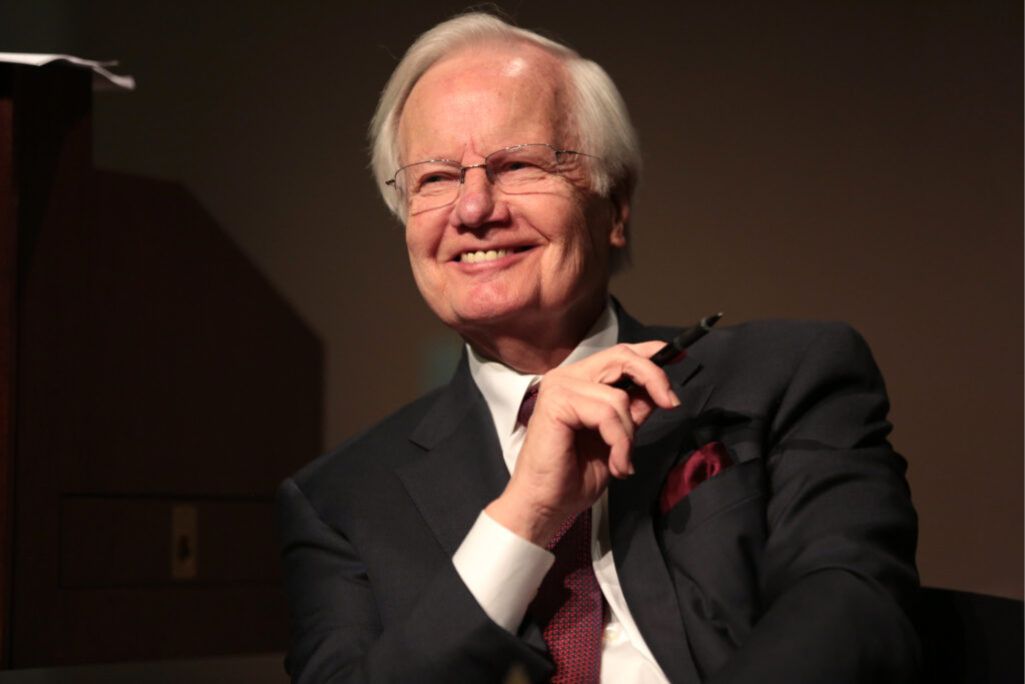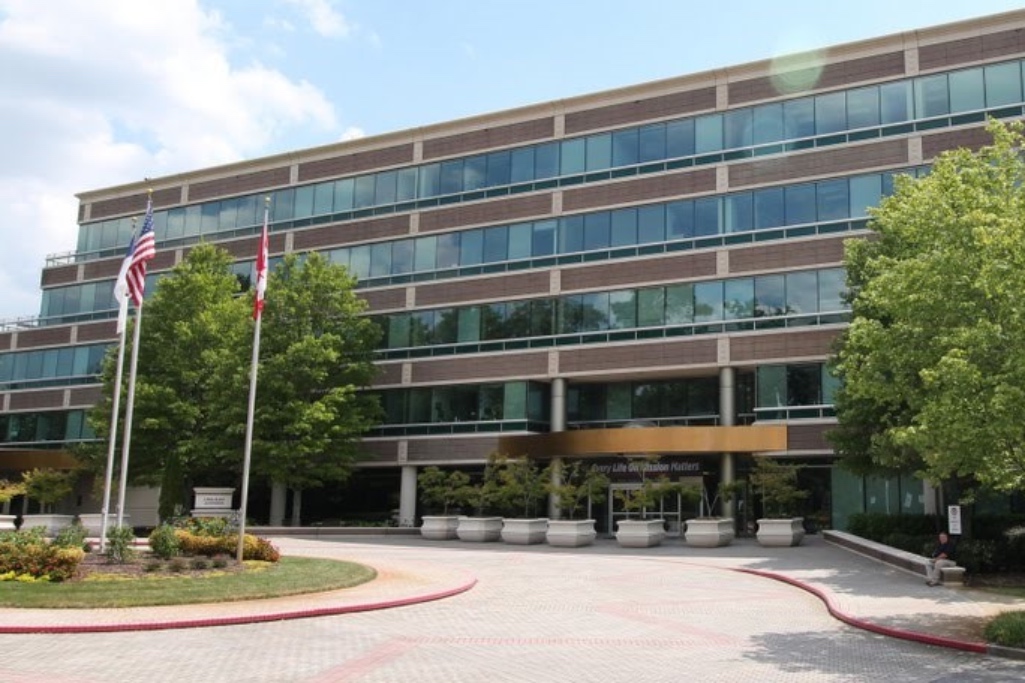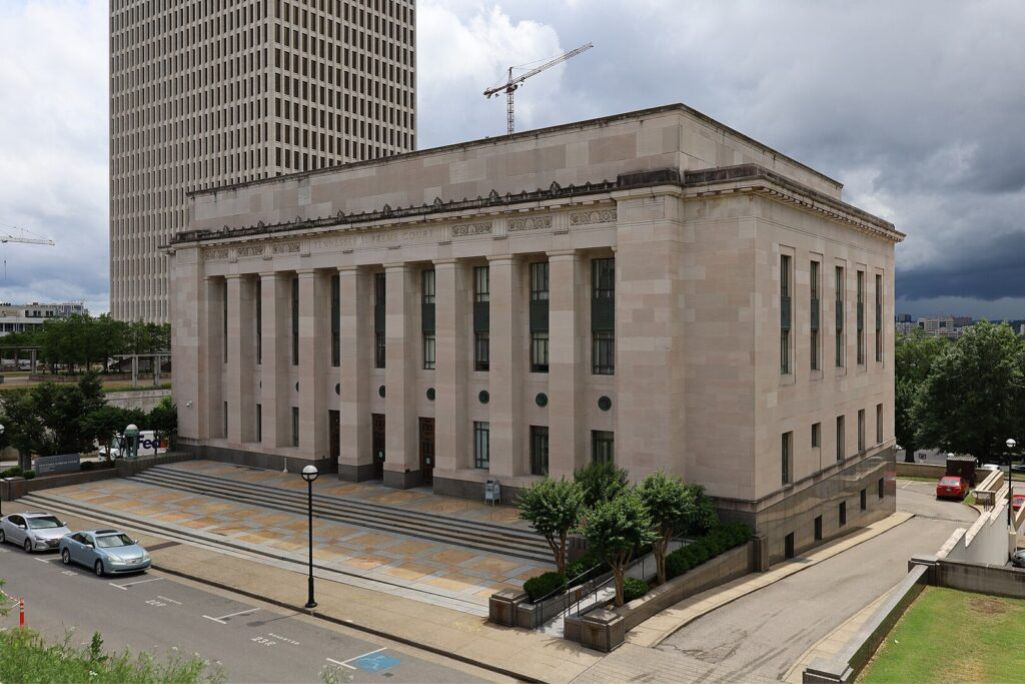
Bill Moyers, a renowned broadcast journalist with strong Texas Baptist roots, died on June 26 in New York, N.Y. He was 91.
He first became known nationally as deputy director of the Peace Corps during the Kennedy administration, special assistant to President Lyndon Johnson and White House press secretary during the Johnson administration.
After a few years as publisher of Newsday in Long Island, N.Y., he moved to television, where he hosted “Bill Moyers Journal” on public television and worked two stints with CBS News.
He and his wife Judith went on to form their own production company, Public Affairs Television, where Moyers had greater editorial freedom to conduct in-depth interviews and produce documentaries on a wide range of subjects.
Moyers won 13 Emmy Awards, a Peabody Award and three George Polk Awards for contributions to journalistic integrity and investigative reporting. He was inducted into the Television Hall of Fame in 1995.
But before all of that, Moyers grew up in an East Texas Baptist church, preached in rural churches, served as pastor of Texas Baptist congregations and earned a degree from Southwestern Baptist Theological Seminary.
Billy Don Moyers was born in Hugo, Okla., but grew up in Marshall, where he and his family worshiped at Central Baptist Church.
As a teenager, he worked at the Marshall News Messenger, dropping the “y” from his first name because he thought it looked better in a byline.
He also responded to what he discerned at the time as a call to ministry, preaching summer revival meetings in rural churches around East Texas.
Shared interest in ‘Baptist life and ethics’
William M. Pinson Jr., executive director emeritus of the Baptist General Convention of Texas, was close friends with Moyers more than seven decades.
Their friendship dated back to their early student days at what was then North Texas State College. Moyers served as Pinson’s campaign manager when he ran for student body president.
“Strong from the beginning, with a common interest in Baptist life and ethics, that friendship grew even stronger in the ensuing years,” Pinson said.
He recalled Moyers as “highly intelligent and a genius with words.
“I witnessed this firsthand when we were students. He would come to my little garage apartment with a load of books and a typewriter and sit and read the books and then type out a multipage assignment in one sitting — a process I had spent weeks on,” Pinson said.
“Yet, he remained basically humble and soft spoken. He had an intuitive ability to evaluate a need and act quickly, and usually helpfully, to meet it. Thoughtful and fun-loving, with a winsome smile and a streak of mischief, he made friends easily. We always enjoyed times together.”
Influenced by ethicist T.B. Maston
Their “friendship was cemented” when Pinson and Moyers spent a year together studying at New College of the University of Edinburgh, Scotland.
“We also spent months visiting missionaries in Europe,” he recalled. “To travel, we either hitchhiked or drove a car so small you put it on rather than getting in. During those months of togetherness, we forged a bond that was to last almost three quarters of a century.”
Both Pinson and Moyers studied at Southwestern Seminary under trailblazing Christian ethics professor T.B. Maston.
“Dr. Maston’s teaching and writing were often controversial, and so were Bill’s. But neither wavered in a commitment to share the truth as they perceived it — even when it sometimes cost Bill his job,” Pinson said.
While he was a seminary student, Moyers worked as the seminary’s director of information and also was a rural Texas Baptist pastor.
“When I look back, the people to whom I am most indebted are those warm and patient and loving people at Brandon and Weir and Shiloh and Loco who could, despite what I said between 11 and 12 o’clock, have me to dinner at 12:30 and still be a friend,” he said in a 1982 interview with Stan Hastey, published in Report from the Capital.
Shaped by Central Baptist in Marshall
In the wide-ranging television documentaries he produced through the years, Moyers frequently returned to subjects related to religion and ethics, with programs such as “Amazing Grace,” “Genesis: A Living Conversation” and “A World of Ideas.”
In 1987, Moyers produced “The Battle for the Bible” as part of his series on “God and Politics.” It focused on what Southern Baptists now call the “Conservative Resurgence” and what critics called the “Fundamentalist Takeover” of the Southern Baptist Convention.
“The stakes are not only theological. The battle for the Bible is also political — a battle for church and state, a battle for America,” Moyers said in the documentary.
During a segment filmed at Central Baptist Church in Marshall, Moyers said: “Everything I learned about faith and democracy I learned from this congregation. I didn’t learn a creed from these people. There was no creed and no coercion. … They taught me to read the Bible for myself. … The important thing was my own experience with the Bible — not what anyone said about the Bible, but what the Bible said to me.”
When Moyers spoke at Central Baptist Church’s 50th anniversary in 1993, Pastor Wallace Watkins introduced the award-winning broadcaster simply as “Henry and Ruby Moyers’ son.”
“This church is so much a part of my own story that I would not be able to explain myself to my grandson without it,” Moyers told the congregation.
Learned lifelong lessons in faith
He reflected on lessons he learned at the East Texas church.
“I learned about humanity in this church. I learned about frailty and forgiveness and fellowship,” he said.
Moyers remembered taking his “first baby steps in faith” at Central Baptist Church. He described a time when he “squirmed … prayed … held hands and flirted with pretty girls … (and) wrestled with hard questions” at the church.
The Baptist distinctive of soul competency was central to the faith he learned at Central Baptist Church, Moyers said.
“Created with the imprint of divinity from the mixed clay of Earth, you and I are endowed with the freedom and capacity to be ‘response-able’ — a grown-up before God. When God touched that clay, God touched our minds with the power to think and reason,” he told the congregation.
“Truth is not some doctrinal proposition frozen like flavor in a popsicle. Truth emerges from experience and encounter and sharing in a community of faith whose members struggle daily to love justice and mercy and to walk humbly with the Lord. Truth breathes life into tradition.”
(EDITOR’S NOTE — This article originally appeared in the Baptist Standard.)


